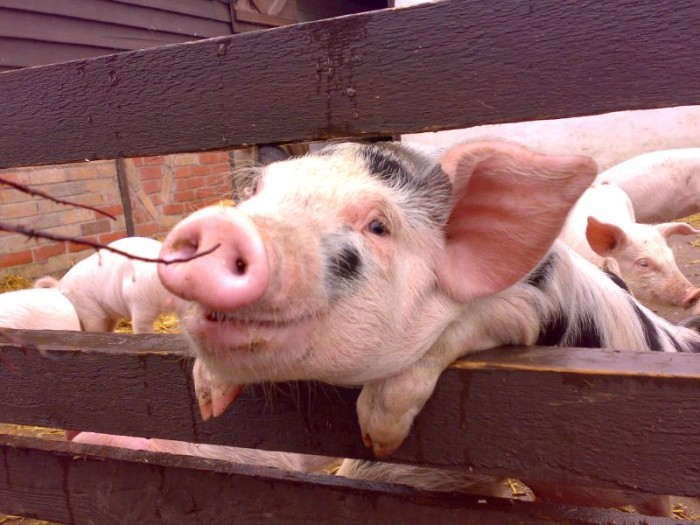In the past decade, American food culture has experienced an incredible awakening. Everyone–from the coastal urbanites to rural middle Americans–is aware that eating meat is bad for your health. The ills of factory farming have become widely acknowledged. More people care about how healthy, organic, and clean their food is, than ever before. Influential food writers like Michael Pollan and Mark Bittman argue that the ideal way to eat is buying local, organic, and in-season foods, and eating a lot of plant-based foods with small amounts of meat. And this argument, exemplified by Pollan’s bestseller Omnivore’s Dilemma, has gained a huge following as the “rational,” pragmatic approach to eating ethically in the modern world.
It is ironic, but perhaps unsurprising, that these “pragmatists” have become the ideological foil to vegans.
Pollan has stated: “I could eat meat in this very limited way from farmers who were growing it in a way that I could feel good about how the animals lived.” In other words, if the cow were grass-fed as opposed to confined to a feeding lot, he has no problem with the fact that this thinking, feeling, social, and conscious animal was slaughtered for his dinner.
Unfortunately, this idea that “knowing your meat” makes you an ethical consumer is all too pervasive, embraced by most mainstream intellectuals, influencers, and educated liberals. They buy organic beef and handmade, small batch cured sausages from the farmer’s market; they are careful to ask the right questions at the restaurant. There is comfort in knowing that your meat comes from an idyllic farm upstate, or lovingly cured by young hipsters in Brooklyn. But this kind of thinking represents not so much “omnivore’s dilemma,” but “omnivore’s rationalization.” “Knowing your meat” means nothing when you’re devoid of empathy, or actually putting yourself in another’s shoes: and learning about the animals without empathy is just another form of self-indulgence.
This kind of ethos results in such displays as “Meating Amy,” a piece showcased during Beijing Design Week last September. Conceived as a multimedia “art” blending film, food, and design by renowned chef Daniel Boulud and design firm Jelly Mon, guests were shown a documentary following the life of Amy, a pig at an organic farm in China, up until the moment of her slaughter; after the film, the guests dined on all parts of a pig (not Amy, but from the same farm), using utensils made from pig parts. The designer of the project stated that “The documentary might be morbid, but the whole experience will be fun and lighthearted…I want people to consciously enjoy food products […] We should fully utilize whatever materials or resources we have in hand.”
That this grotesque performance was conceived as art, let alone “fun and lighthearted,” is enough to prompt outrage. But this notion that you can get to “know” a pig by watching its life, and later enjoy its flesh by being more “conscious” and “connected,” is an incorrigible ethical lapse–a blindness to the true meaning of understanding. Here, gaining knowledge of the other is a completely selfish and inauthentic act. The truth is, once you are truly connected to the animal–see it as the being that it is, instead of your dinner–one cannot justify or condone eating its flesh.
Just knowing something doesn’t affirm anything about one’s ethical character. If the knowledge only leads to moral complacence, it is more dangerous than beneficial. It is not enough to “meat” Amy, seeing her ultimately as food-to-be–the only truly conscientious choice is to meet Amy.
More in Op-ed: Why Anthropomorphism Can Be a Good Thing
All Vegans Should Be Feminists
__
Photo: Ed Mitchell via Flickr

